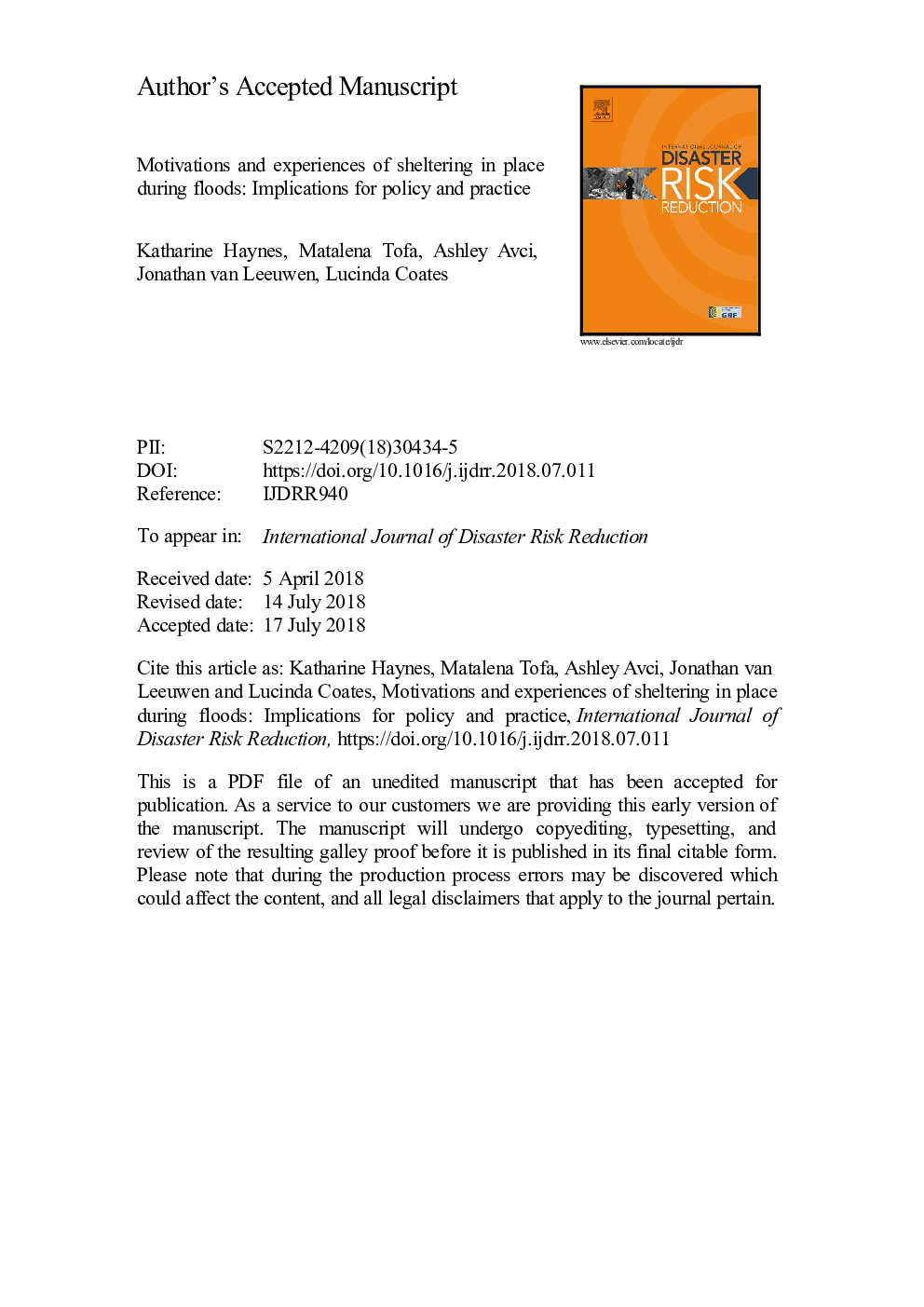| Article ID | Journal | Published Year | Pages | File Type |
|---|---|---|---|---|
| 7470861 | International Journal of Disaster Risk Reduction | 2018 | 21 Pages |
Abstract
Whilst much research considers evacuation behaviours during floods and other natural hazard events, and how to motivate greater compliance to evacuation orders, there is little research documenting peoples' reasons for, and experiences of, sheltering at their home or business during floods. Focusing on the experiences of residents and business owners who sheltered during a major flood event, this study explores the motivations for staying during floods, residents' practices while sheltering, and the attendant challenges and impacts. Semi-structured interviews and a questionnaire were conducted with residents and business owners in the Richmond, Brunswick and Tweed river catchments in New South Wales in the months following an extensive flood event in 2017. The research identified a culture of sheltering during floods in these communities that is passed down through families and communities. Nuanced personal and locally specific factors influenced decisions to shelter, and official warnings and evacuation orders were often considered inaccurate or too late, or disregarded due to 'warning fatigue'. Findings also reveal that sheltering can be physically and psychologically challenging, and often involves actively defending people, property, and possessions from floodwaters. This study highlights the critical importance of context to understanding sheltering decisions, and consequently, the need for nuance in emergency management responses and risk communication. It also shows the importance of understanding what sheltering involves and its impacts, particularly given increasing pressure to urbanise and develop flood plains.
Related Topics
Physical Sciences and Engineering
Earth and Planetary Sciences
Geophysics
Authors
Katharine Haynes, Matalena Tofa, Ashley Avci, Jonathan van Leeuwen, Lucinda Coates,
